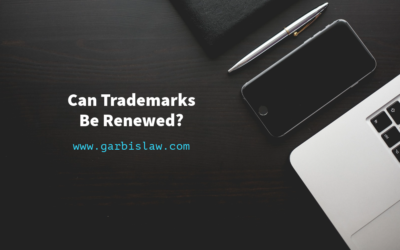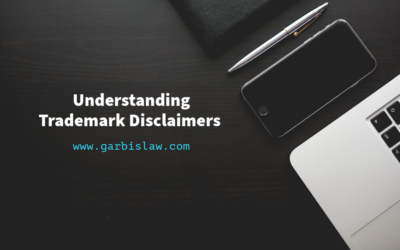One of the most daunting tasks when starting a business is naming it. It is far too common that a new business owner comes up with a name which does not provide the solid foundation necessary to build a strong brand. You should avoid the urge of being too descriptive of the goods or services your company provides when naming your business. Take a second and think about some of the most recognizable trademarks out there: Apple®, Nike®, Google®, Amazon.com®. What do all of these have in common? None of them describe the goods or services that they sell in their names. We all know Apple did not become a $400 billion company selling apples to consumers.
When determining whether or not to issue a trademark, the U.S. Patent and Trademark Office (“USPTO”) will identify if the mark is merely descriptive or not. Essentially, there are four basic types of trademarks: (1) generic, (2) descriptive, (3) suggestive, and (4) arbitrary or fanciful. A mark will be considered generic if it simply names the goods or services that are being sold. Such a mark will not be granted registration by the USPTO. A descriptive mark describes a particular feature of the goods or services and will initially be denied registration unless it has developed secondary meaning. In other words, if the public identifies the descriptive term with a specific company it may have acquired secondary meaning. For example, “Raisin Bran” was deemed to be a descriptive mark by the USPTO and was not afforded registration.
Suggestive marks are a step in the right direction as they require a bit more thought into identifying the source of the goods or services. These types of marks may be registered if they avoid being merely descriptive. Well known examples of suggestive marks include Chicken of the Sea® (for tuna) and Coppertone® (for sun tan lotion). If you are considering using a suggestive mark, you should ask yourself whether or not your competitors would use the same words to describe the product. If they would, then your mark is most likely descriptive and you will have a difficult time getting it registered.
The strongest types of trademarks are those that are arbitrary or fanciful. A mark is arbitrary when no relationship exists between the mark and the business. This goes back to the example of Apple® selling computers and not apples. Fanciful marks are typically made up terms that had no prior meaning before their use as trademarks. Examples of fanciful marks include Kodak®, Xerox® and Starbucks®.
So when naming your company or determining what trademarks to register, it is important to look at all of the facts surrounding your situation. A fanciful mark is ideal, but you must consider whether or not you have the capital available for the necessary advertising to allow consumers to identify your brand. On the flip side, having a mark that borders on the descriptive and suggestive levels may lead to additional time and money allocated to convincing the USPTO you have a registerable mark and policing your brand.





